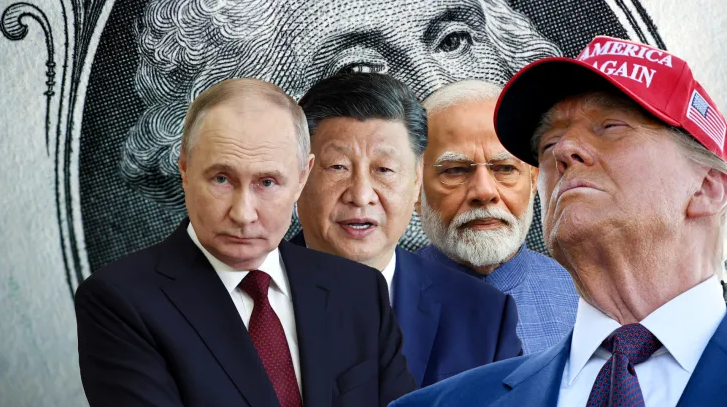Xiao Bin, Deputy Secretary-general, Center for Shanghai Cooperation Organization Studies, Chinese Association of Social Sciences
Jan 27, 2025
The war is unlikely to end according to the timeline of the incoming U.S. president. Imposing his Ukraine plan on Ukrainian President Volodymyr Zelenskyy could give Russia an opportunity to rearm, thereby raising hurdles for the United States and its NATO allies.
Xiao Bin, Deputy Secretary-general, Center for Shanghai Cooperation Organization Studies, Chinese Association of Social Sciences
Jan 07, 2025
When he enters the White House, Donald Trump is going to need a resolution of the Ukraine conflict. But Russia’s decision-makers are unlikely to yield to him. Even if Trump got his way, the underlying issues between Russia and the West would persist.
Ted Galen Carpenter, Senior Fellow, Randolph Bourne Institute
Dec 20, 2024
Former Taiwanese President Tsai Ing-wen’s call for the U.S. to prioritize aid to Ukraine over Taiwan drew scrutiny, especially given rising cross-Strait tensions. While Tsai’s stance may momentarily shift Trump’s administration's attention in East Asia, it risks undermining his likely focus on ending the costly Ukraine conflict and confronting China more aggressively, with Taiwan as a key flashpoint.

Richard Javad Heydarian, Professorial Chairholder in Geopolitics, Polytechnic University of the Philippines
Dec 13, 2024
The West’s dominating influence around the world has come under heavy scrutiny as open conflicts rage on in Europe and the Middle East. Does this year’s BRICS Summit, hosted in Russia, represent an inflection point in the global community’s tolerance for U.S.-led order?
Jade Wong, Senior Fellow, Gordon & Leon Institute
Nov 18, 2024
The Russia-Ukraine conflict, which broke out in February 2022, marked the latest episode of the use of warfare as a tool to accelerate change in the world order. But two other events disturbed Asia and the Middle East: U.S. House Speaker Nancy Pelosi’s visit to Taiwan in August 2022 and the Israel-Hamas conflict, which broke out in October 2023. People began to worry about potential interplay across three war zones. Such a prospect has become more prominent in recent months, and may be worthy of note by historians.
Xiao Bin, Deputy Secretary-general, Center for Shanghai Cooperation Organization Studies, Chinese Association of Social Sciences
Oct 25, 2024
The longer the war drags on, the more variables there will be. Bearing this in mind, Volodymyr Zelenskyy may modify his tough stance against giving up land and seek more pragmatic ways to end the war, such as a truce conditional on NATO or European Union membership.
Philip Cunningham, Independent Scholar
Oct 18, 2024
The “with us or against us" diplomatic approach has polarizing effects, particularly in the context of Russia's invasion of Ukraine. And the global outrage against Russia’s aggression and critiques of China’s tacit support suggests that Putin’s actions will be viewed as a moral failure akin to past fascist regimes.
Xiao Bin, Deputy Secretary-general, Center for Shanghai Cooperation Organization Studies, Chinese Association of Social Sciences
Oct 08, 2024
For the Ukrainian president to consummate his victory plan he must either wait for or create favorable external conditions. The plan is closely intertwined with the evolving dynamics of relations between China, the United States and Russia.
Xiao Bin, Deputy Secretary-general, Center for Shanghai Cooperation Organization Studies, Chinese Association of Social Sciences
Aug 21, 2024
Ukraine’s advance into Russian territory may pose new risks, including escalation of the war and further complication of the peace process. The aim may be to create a “land-for-land” negotiation in the future, but this may not work. Peace cannot be achieved as long as one side believes it can win. It only happens when one of the warring parties is exhausted.
Philip Cunningham, Independent Scholar
Jul 31, 2024
China’s relationship with Russia puts its relationship at risk with the West, and is perhaps the most significant challenge in China-U.S. relations.
Back to Top

- China-US Focus builds trust and understanding between the U.S. and China through open dialogue among thought leaders.
- Our Offerings
- Topics
- Videos
- Podcasts
- Columnists
- Research Reports
- Focus Digest
- Stay Connected
-
Thanks for signing up!
- Get the latest stories from China-US Focus weekly.